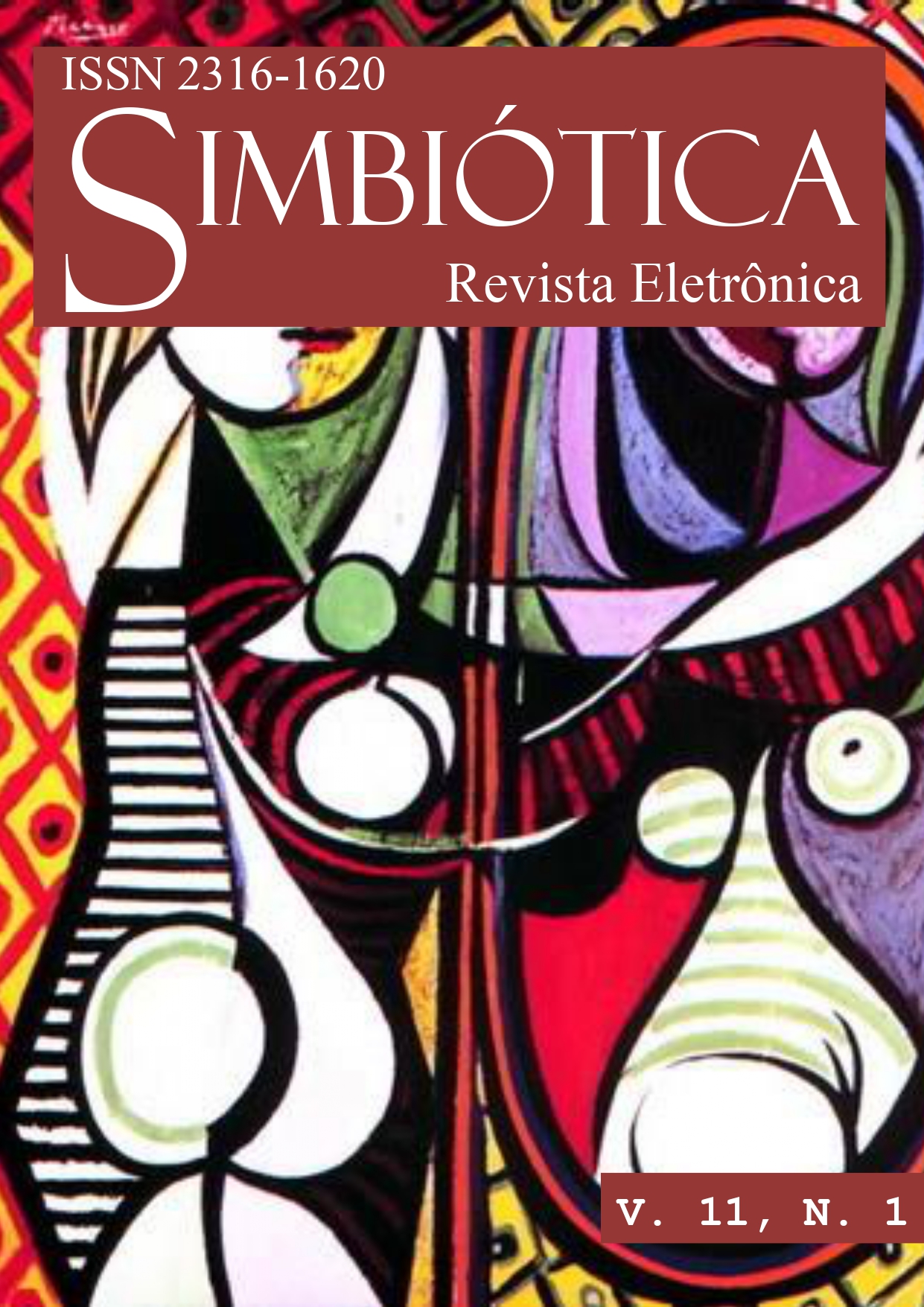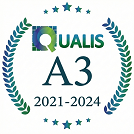¿La Motivación Académica como Clave del éxito? Un Intento de Comprensión Basado en la Percepción
Academic Motivation as a key to success? An Attempt at Understanding Based on Perception
DOI:
https://doi.org/10.47456/simbitica.v11i1.38659Resumen
La presente investigación busca analizar la vision de los estudiantes de educación superior en Portugal sobre el papel que asume la motivación en su rendimiento académico, así como comprender cuáles son los principals factores de motivación de estes estudiantes. Para el cumplimiento de los objetivos se utilize una metodología cuantitativa mediante la aplicación de um cuestionario a una muestra de 158 estudiantes de educación superior y una metodología cualitativa mediante la realización de 9 entrevistas semiestructuradas. Los principales resultados permiten comprender que la motivación de los estudiantes de educación superior de la muestra analizada es vista como un simple facilitador de trabajo y proviene esencialmente de factores estrínsecos, aunque reconocen que sienten sarisfacción al aprender nuevos temas son impulsados essencialmente por perspectivas de una vida futura major.
Referencias
Adamma, Onyekwere N.; Ekwutosim, Okoro P.; Unamba, Eugene. C. (2018). “Influence of Extrinsic and Instrinsic Motivation on pupils’ academic performance in mathematics”. Supremum Journal of Mathematics Education, v. 2, v, n. 2, pp. 52-59. [Consult. 17-04-2022]. Disponível em https://doi.org/10.5281/zenodo.1405857
Afzal, Hasan; Ali, Imran; Khan, Muhammad; Hamid, Kashif. (2010). “A study of University Students’ Motivation and its relationship with their academic performance”. SSRN Electronic Journal, v. 5, n. 2, pp. 80-88. [Consult. 10-04-2022]. Disponível em 10.2139/ssrn.2899435
Bandura, Albert. (2000). “Cultivate self-efficacy for personal and organizational effectiveness”, in E. A. Locke (2nd. Ed.), Handbook of principles of organizations behavior. Wiley, pp. 179-200.
Baquero, Fabíola; Síveres, Luiz. (2013). “A dinâmica motivacional no processo de aprendizagem na extensão universitária”, in L. Síveres (1st. Ed.), A Extensão Universitária como princípio de aprendizagem, pp. 37-54.
Baslková, Martina; Lepczyk, Justyna, Hriníková, Dominika; Blasko, Rudolf (2019). “Sustainable Academic Motivation”. Sustainability, v. 11, n. 21, pp. 1-24. [Consult. 17-04-2022]. Disponível em http://dx.doi.org/10.3390/su11215934
Bhattacharya, Riya; Bhattacharya, Bani. (2015). “Psychological factors affecting students’ academic performance in higher education among students”. International Journal for Research and Development in Technology, v. 4, n. 1, pp. 63-71.
Boden, Kelly; Zepeda, Cristina; Nokes-Malach, Timothy. (2020). “Achievement goals and conceptual learning: An examination of teacher talk”. Journal of Educational Psychology, v. 112, n. 6, pp. 1- 22. [Consult. 17-04-2022]. Disponível em http://dx.doi.org/10.1037/edu0000421
Boruchovitch, Evely. (2008). “A motivação para aprender de estudantes em cursos de formação de professores”. Educação, v. 31, n. 1, pp. 30-38.
Bouffard, Thérèse; Boisvert, Jacques; Vezeau, Carole; Larouche, Claudette. (1995). “The impact of goal orientation on self-regulation and performance among college students”. British Journal of Educational Psychology, v. 65, n. 3, pp. 317-329. [Consult. 17-04-2022]. Disponível em http://dx.doi.org/10.1111/j.2044-8279.1995.tb01152.x
Cachia, Moira; Lynam, Siobhan; Stock, Rosemary. (2018). “Academic success: is it just about the grades?”. Higher Education Pedagogies, v. 3, n. 1, pp. 434-439. [Consult. 16-04-2022]. Disponível em https://doi.org/10.1080/23752696.2018.1462096
Cheng, Yinchun. (2020). “Correlation between Self-Efficacy and English Performance”. International Journal of Emerging Technologies in Learning, v. 15, n. 8, pp. 223-234 [Consult. 16-04-2022]. Disponível em http://dx.doi.org/10.3991/ijet.v15i08.13697
Correia, Pedro; Cavalcante, Lindemberg. (2017). “A perceção de servidores públicos do efeito de motivos externos no envolvimento com a organização”. Revista da FAE, v. 20, n. 2, pp. 137-152. [Consult. 17-04-2022].
Correia, Pedro; Jeremias, Ana. (2019). “Trabalho de Equipa em Saúde como Processo de relação formal potenciador da satisfação e motivação laboral”. Sociologia: Revista da Faculdade de Letras da Universidade do Porto, v. 38, pp. 88-109. [Consult. 16-04-2022]. Disponível em 10.21747/08723419/soc38a5
Correia, Pedro; Mendes, Ireneu; Silva, Sara. (2019). “A perceção de justiça na avaliação do desempenho na Administração pública e produtividade”. Sociologia: Revista da Faculdade de Letras da Universidade do Porto, v. 37, pp. 31-50. [Consult. 18-04-2022]. Disponível em 10.21747/08723419/soc37a2
Emkic, Medina. (2010). Motivation-the driving force for our actions. A study of the importance of learning experiences, learner beliefs, self-determination and personal goals for motivation and attitudes in English language learning. Dissertação de Mestrado em educação. Dalarna University, Suécia.
Gonçalves, Bruno. (2017). A motivação e satisfação no trabalho: Importância, Fatores, relacionamento e consequências. Dissertação de Mestrado em Ciências Empresariais. Universidade Fernando Pessoa, Faculdade de Ciências Humanas e Sociais.
Jeno, Lucas; Danielsen, Anne; Raaheim, Arild. (2018). “A Prospective investigation of students’ academic achievement and dropout in higher education: a self-determination Theory Approach”. Educational Psychology, v. 38, n. 9, pp. 1163-1184. [Consult. 22-04-2022]. Disponível em https://doi.org/10.1080/01443410.2018.1502412
Lei, Simon. (2010). “Intrinsic and Extrinsic Motivation: Evaluating Benefits and Drawbacks from College Instructors’ perspectives”. Journal of Instructional Psychology, v. 37, n. 2, pp. 153-160 [Consult. 18/04/2022].
Liu, Woon. (2021). “Implicit Theories of Intelligence and Achievement Goals: A look at Students’ Intrinsic Motivation and Achievement in Mathematics”. Frontiers in Psychology, v. 12. [Consult. 22-04-2022]. Disponível em https://doi.org/10.3389/fpsyg.2021.593715
Mahasneh, Randa; Al-Alwan, Ahmed. (2011). “Goal Orientation of university students and its relationship to self-efficacy and intrinsic motivation”. Journal of Institutional Research in South East Asia, v. 9, n. 2, pp. 21-35.
Maia, Tânia; Correia, Pedro. (2022). “Desafios da Implementação da Nova Gestão Pública”. Lex Humana, v. 14, n.2, pp.121-138.
Maia, Tânia; Correia, Pedro; Costa, Cláudia. (2022). “Avaliação, Accountability, Transparência e Governo Aberto”. Lex Humana, v. 14, n.1, pp. 164- 185.
Maia, Tânia; Correia, Pedro; Costa, Cláudia; Resende, Sérgio. (2023a). “Modelos de gestão pública: uma temática de gerações”. Synesis, v. 15, n. 2, pp. 1-15.
Maia, Tânia; Correia, Pedro; Costa, Cláudia; Resende, Sérgio. (2023b). “Setor Público: o fenómeno da avaliação e responsabilização de resultados”. Journal of teleological Science, v. 3, pp. 32-49.
Maia, Tânia; Correia, Pedro; Costa, Cláudia; Resende, Sérgio. (2023c). “Teorias de formação de políticas públicas: Uma visão histórica da temática”. Journal of teleological Science, v. 2, pp. 19-35.
Maia, Tânia; Correia, Pedro; Resende, Sérgio. (2023d). “O papel da liderança na Administração Pública: Desafios emergentes na nova gestão pública”. Lex Humana, v. 15, n. 4, pp. 7-35.
Maia, Tânia; Correia, Pedro; Resende, Sérgio. (2023). “Um novo olhar sobre a formação de políticas públicas e sua influência organizacional”. Synesis, v. 15, n. 1, pp. 99-114.
Osemeke, Monday; Adegboyega, Samuel. (2017). “Critical review and comparison between Maslow, Herzberg and McClelland’s Theory of needs”. Funai-Journal of Accounting, Business and Finance, v. 1, n. 1, pp. 161-173.
Pereira, Sandra; Correia, Pedro. (2020). “Movimentos Pós-Nova Gestão Pública: O Novo Serviço Público”. Lex Humana, v. 12, n. 1, pp. 69-85.
Pereira, Sandra; Correia, Pedro. (2022). “Ensaio sobre a complexidade da prestação de serviços públicos”. Lex Humana, v. 14, n. 1, pp. 149-163.
Poortvliet, Marijn; Darnon, Céline. (2010). “Toward a More Social Understanding of Achivement Goals: The interpersonal Effects of mastery and performance goals”. Current Directions in Psychological Science, v. 19, n. 5, pp. 324-328. [Consult. 20-04-2022]. Disponível em https://doi.org/10.1177%2F0963721410383246
Rawsthorne, Laird; Elliot, Andrew. (1999). “Achievement goals and intrinsic motivation: A meta-analytic review”. Personality and Social Psychology Review, v. 3, n. 4, pp. 326-344 [Consult. 16/04/2022]. Disponível em https://doi.org/10.1207%2Fs15327957pspr0304_3
Ryan, Richard; Deci, Edward. (2000). “Self-Determination Theory and the facilitation of intrinsic motivation, social development, and well-being”. The American Psycological Association, v. 55, n. 1, pp. 68-78. [Consult. 17-04-2022]. Disponível em 10.1037/0003-066X.55.1.68
Ryan, Richard; Deci, Edward. (2020). “Intrinsic and extrinsic motivation from a self-determination theory perspective: Definitions, theory, practices and future directions”. Contemporary Educational Psychology, v. 61, pp. 1-11. [Consult. 20-04-2022]. Disponível em https://doi.org/10.1016/j.cedpsych.2020.101860
Scherrer, Vsevolod; Preckel, Franzis; Schmidt, Isabelle; Elliot, Andrew. (2020). “Development of achievement goals and their relation to academic interest and achievement in adolescence: A review of the literature and two longitudinal studies”. Developmental Psychology, v. 56, n. 4, pp. 795-814. [Consult. 17-04-2022]. Disponível em http://dx.doi.org/10.1037/dev0000898
Schunk, Dale. (1995). “Self-efficacy, motivation and performance”. Journal of Applied Sport Psychology, v. 7, n. 2, pp. 112-137. [Consult. 17-04-2022]. Disponível em https://doi.org/10.1080/10413209508406961
Shkoler, Or; Kimura, Takuma. (2020). “How Does Work Motivation Impact Employees’ Investment at Work and Their Job Engagement? A Moderated-Moderation Perspective Through an International Lens”. Frontiers in Psychology, v. 11, pp. 38. [Consult. 22-04-2022]. Disponível em http://dx.doi.org/10.3389/fpsyg.2020.00038
Steinmayr, Ricarda; Weidinger, Anne; Schwinger, Malte; Spinath, Birgit. (2019). “The Importance of students’ motivation for their academic achievement- Replicating and extending previous findings”. Frontiers in Psychology, v. 10. [Consult. 17-04-2022]. Disponível em https://doi.org/10.3389/fpsyg.2019.01730
Vallerand, Robert; Pelletier, Luc; Blais, Marc; Brière, Nathalie; Senécal, Caroline; Vallieres, Evelyne. (1992). “The Academic Motivation Scale: A Measure of Intrinsic, Extrinsic and Amotivation in Education”. Educational and Psychological Measurement, v. 52, n. 4, pp. 1003- 1017. [Consult. 22-04-2022]. Disponível em 10.1177/0013164492052004025
Vasconcellos, Diego; Parker, Philip; Hilland, Toni; Cinelli, Renata; Owen, Katherine; Kapsal, Nathanial; Lonsdale, Chris. (2020). “Self-determination theory applied to physical education: A systematic review and meta-analysis”. Journal of Educational Psychology, v. 112, n. 7, pp. 1444-1459. [Consult. 17-04-2022]. Disponível em http://dx.doi.org/10.1037/edu0000420
Vu, Tuong; Magis-Weinberg, Lucía; Jansen, Brenda; Atteveldt, Nienke; Janssen, Tieme; Lee, N.ikki; Raijmakers, Maartje; Sachisthal, Maien; Maas, Han; Meeter, Martijn. (2022). “Motivation-Achievement Cycles in Learning: A literature review and research agenda”. Educational Psychology Review, v. 34, n. 1, pp. 39-71. [Consult. 31-04-2022]. Disponível em https://link.springer.com/article/10.1007/s10648-021-09616-7
Zaccoletti, Sonia; Camacho, Ana; Correia, Nadine; Aguiar, Cecília; Mason, Lucia; Alves, Rui; Daniel, João. (2020). “Parents’ Perceptions of Student Academic Motivation Direing the COVID-19 Lockdown: A Cross-Country Comparison”. Frontiers in Psychology, v. 11. [Consult. 17-04-2022]. Disponível em https://doi.org/10.3389/fpsyg.2020.592670
Zakariya, Yusuf; Bjørkestøl, Kirsten, Nilsen, Hans, Goodchild, Simon; Lorås, Madeleine. (2020). “University students’ learning approaches: An adaptation of the revised two-factor study process questionnaire to Norwegian”. Studies in Educational Evaluation, v. 64. [Consult. 17-04-2022]. Disponível em https://doi.org/10.1016/j.stueduc.2019.100816
Descargas
Publicado
Número
Sección
Licencia
Derechos de autor 2024 Maria Beatriz Bernardo Sousa, Pedro Miguel Alves Ribeiro Correia, Fabrício Castagna Lunardi

Esta obra está bajo una licencia internacional Creative Commons Atribución-NoComercial 4.0.
Autores que publicam nesta revista concordam com os seguintes termos:
a. Autores mantém os direitos autorais e concedem à revista o direito de primeira publicação, com o trabalho simultaneamente licenciado sob a Creative Commons - Atribuição-NãoComercial 4.0 Internacional.
b. Compartilhar - copiar e distribuir o material em qualquer meio ou formato.
Adaptar - remix, transformar e construir sobre o material para qualquer finalidade, inclusive comercial.
c. Autores têm autorização para assumir contratos adicionais separadamente, para distribuição não-exclusiva da versão do trabalho publicada nesta revista (ex.: publicar em repositório institucional ou como capítulo de livro), com reconhecimento de autoria e publicação inicial nesta revista.
d. Autores têm permissão e são estimulados a publicar e distribuir seu trabalho online (ex.: em repositórios institucionais ou na sua página pessoal) a qualquer ponto antes ou durante o processo editorial, já que isso pode gerar alterações produtivas, bem como aumentar o impacto e a citação do trabalho publicado (Veja O Efeito do Acesso Livre).
Authors who publish in this journal agree to the following terms:
a. Authors retain the copyright and grant the magazine the right of first publication, with work simultaneously licensed under the CCreative Commons - Atribuição-NãoComercial 4.0 Internacional.
b. Share - copy and distribute the material in any medium or format.
Adapt - remix, transform and build on the material for any purpose, including commercial.
c. Authors are authorized to take additional contracts separately, for non-exclusive distribution of the version of the work published in this journal (eg, publish in institutional repository or as a book chapter), with acknowledgment of authorship and initial publication in this journal.
d. Authors are allowed and encouraged to publish and distribute their work online (eg.: in institutional repositories or on their personal page) at any point before or during the editorial process, as this can generate productive changes as well as increase the impact and the citation of the published work (See The Effect of Free Access).












